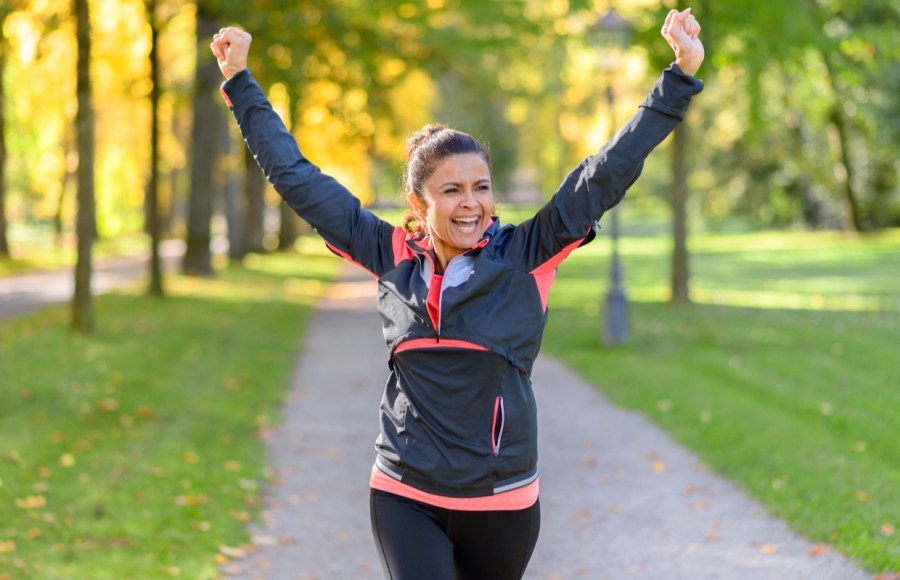Want to be fit for life? Prepare your body for ageing with these fitness tips for every decade of life…
By Emma Lewis
Being old may feel a long way off. However, ageing starts in your 30s, and you could well be old for a long time. So how can you give yourself the best chance at being super sprightly at 90? Start prepping your body in the right way now, say the experts.
Preparing your body for ageing
Here’s why: ‘We’re living longer than ever before, so training is no longer just about blasting and punishing your body,’ says movement coach Roger Frampton, author of new book Stretch: Seven daily movements to set your body free (Pavilion Books, £14.99).
‘It’s become about how we’ll be moving in a decade, when we’re 60 and even when we’re in our 80s. We need to learn how to prepare our bodies for longer life, so we have to be patient and work towards a greater good.’
Kate Rowe-Ham (@Katerh_fitness), a personal trainer and menopause fitness coach, agrees that we need to shift our priorities when exercising as we start to age. ‘Functional movement is key for mobility and longevity, which is what we should focus on, rather than exercise always being about losing weight!’
Lifespan versus healthspan as you age
Preparing ourselves in the right way will make a huge difference to our overall health and quality of life as we get older. This is according to Sir Muir Gray, director of the optimal ageing programme at the University of Oxford and creator of the new Living Longer Better course for health and fitness professionals run by Future Fit Training.
‘While our lifespans are increasing (thanks largely to medical interventions), our healthspans are not.’ Gray says most people assume chronic diseases and ageing go hand in hand, and think there’s little they can do about their health as they get older, but he stresses this just isn’t true.
‘Ageing is not a cause of major problems until you reach your 90s,’ he says. ‘Inactivity, however, is a major factor in the development of chronic disease.’ He and Frampton both think our largely sedentary lifestyles have a lot to answer for.
Fitness and ageing: rest is not always best
Even when you get to retirement age, rest is not always best. In fact, it’s the opposite: the older you are and the more long-term conditions you have, the more exercise you should take, if possible.
Muir mentions useful NHS guidelines that say people in their 60s and 70s should be doing the ‘daily dozen’ of 12 minutes of moves to increase strength, suppleness and skill, such as those in Frampton’s book. This rises to 14 minutes in your 80s and 15 in your 90s. All these age groups should then also do 30 (not necessarily all in one go) minutes of medium-intensity (where you can have a conversation) exercise, five times a week to improve stamina.
It’s time, say Gray and Frampton, that society changes its attitude to ageing and we all move more and, crucially, in the right ways. Read on to find out what’s happening to your body over the decades and how to create the most robust body you can. Super Gran here you come!
Here are some top tips on optimising your fitness regime for every decade of life, to best prepare your body for the ageing process…
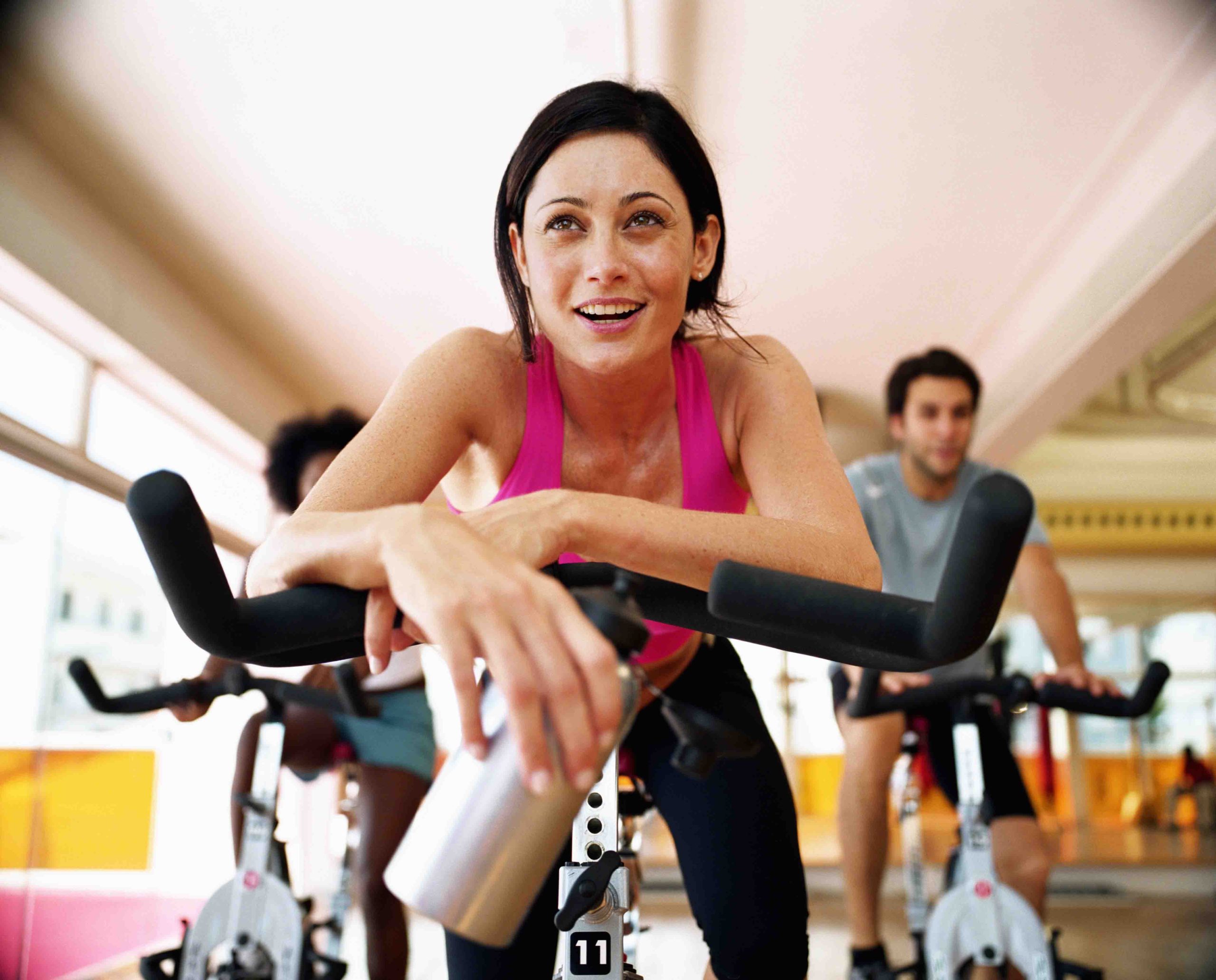
Pre-ageing fitness in your 20s: increased bone density, faster recovery and stronger joints
It’s vital you do as much exercise as you can up to and into your 20s, before you start ageing. Make the most of your ability to recover quickly so you can lay down some solid foundations for later life. Up until around the age of 30, your bones will gain density, especially if you exercise regularly.
‘Your joints are strong and you have plenty of fast-twitch muscle fibres,’ says Amber Gamble, trainer at F45. ‘These fibres are best suited to the HIIT (high-intensity interval training) style of workout. Working your body in quick, short bursts, with maximum energy output, will test both your cardio system and muscle strength.’
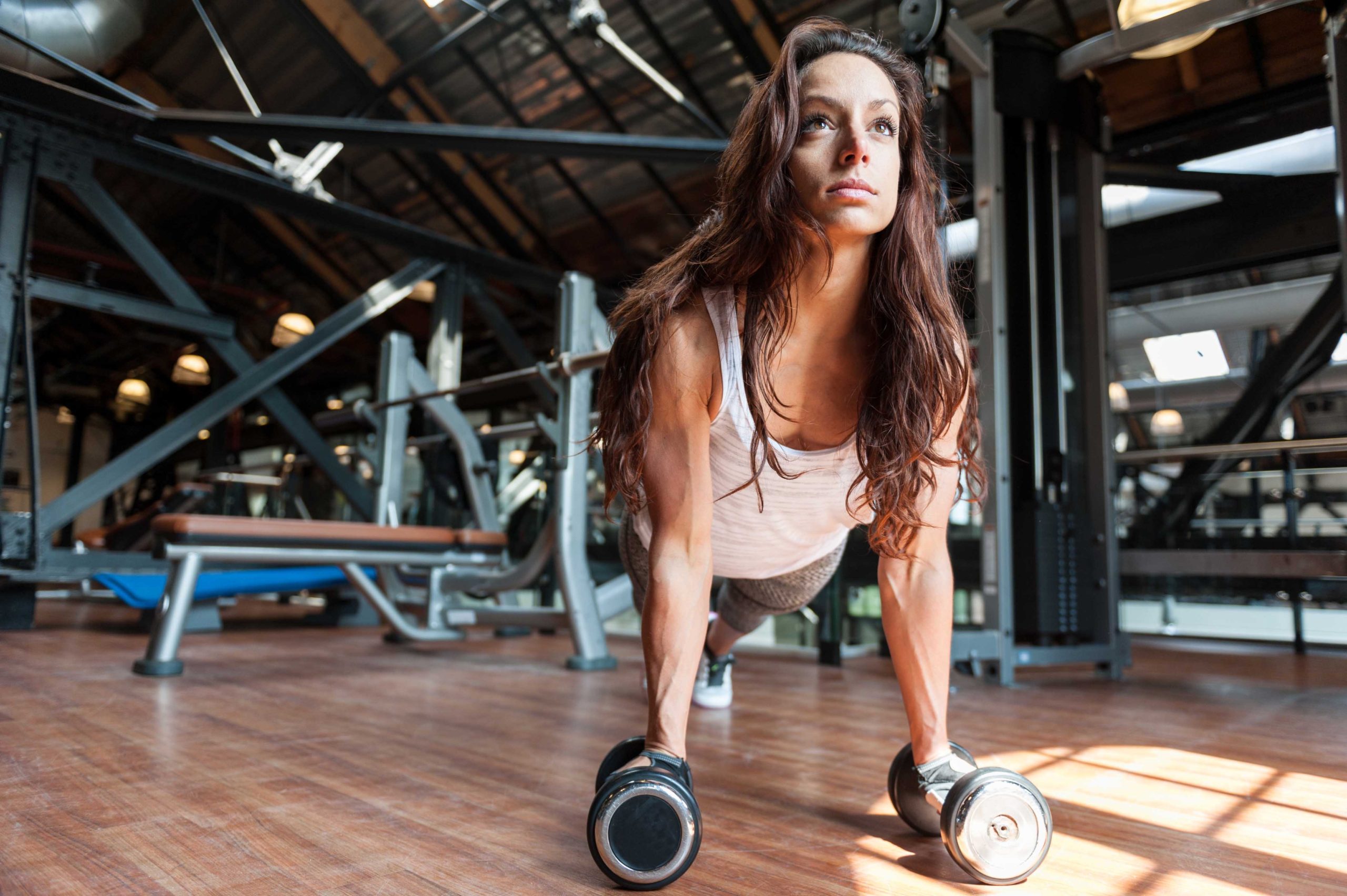
Fitness and ageing in your 30s: decreasing bone density and fertility focus
You’ll start to lose bone density from around the age of 35 as your hormone levels begin to shift, says Rowe-Ham. ‘You should be strength training by now to help prevent osteoporosis, but be aware that post-exercise recovery may now be slower.’
Baz Moffat and Bella Smith, co-founders of The Well HQ and experts in female health and fitness, call your 30s the fertility decade, when many women are trying to have babies, so they also recommend you look after yourself, making sure you get plenty of sleep and nourishing food.
‘Don’t drink or exercise to excess, but move every day for around an hour, and exercise (getting hot and sweaty) three to four times a week,’ they add.
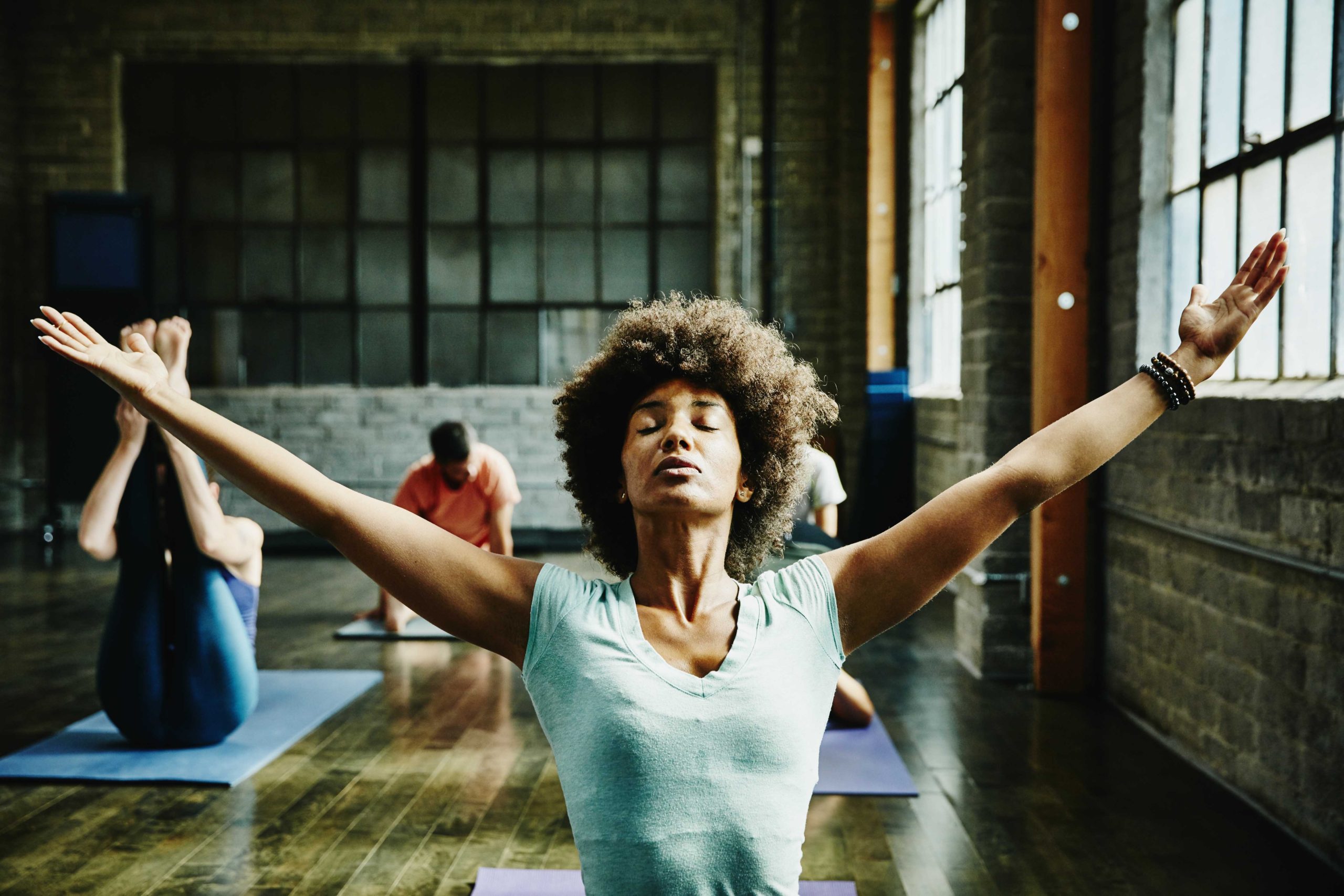
Fitness and ageing in your 40s: hormonal changes, muscle mass and heart disease
Your fitness routine may now be less effective, says Rowe-Ham. ‘This is due to falling levels of oestrogen, progesterone and testosterone, which can affect your body composition. You may start to store a little more fat around your middle and hips, which can put you at higher risk of heart disease, type 2 diabetes and stroke.
Your muscle mass is declining at a rate of three to five per cent a year and that, plus hormonal fluctuations, can make it really hard to gain muscle.’ Moffat and Smith say this decade is all about lack of time, and you need to make time for yourself without feeling guilty.
They also say injury niggles will take longer to heal, plus perimenopausal symptoms might start, so your menstrual cycle may start to change, energy and motivation may dip, you may feel overwhelmed and anxious and your pelvic floor may become problematic. Doing pelvic-floor exercises and lifting weights are a must.
Gamble also recommends yoga and Pilates, plus medium-to low-impact cardio to help encourage balance in body and mind.
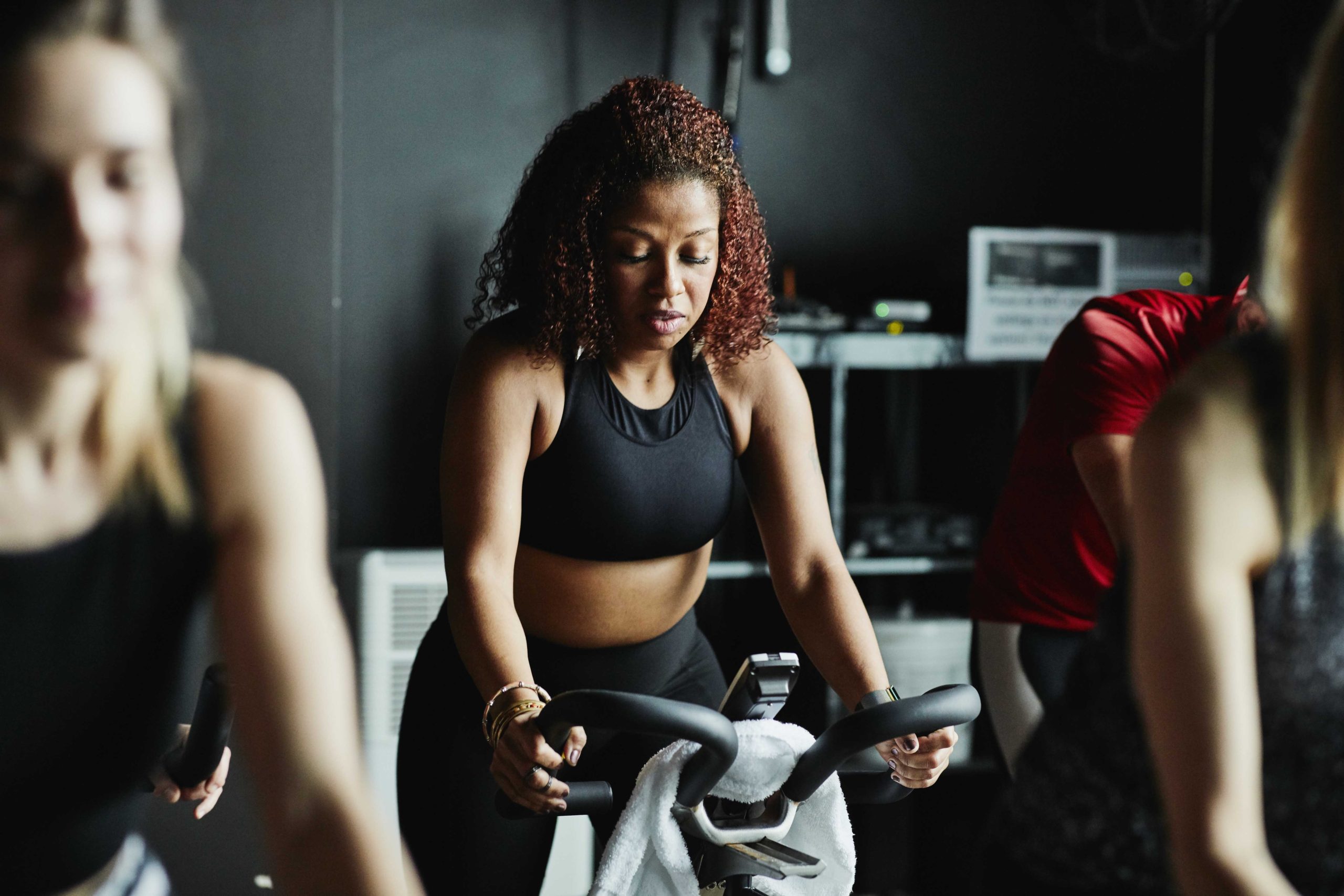
Fitness and ageing your 50s: menopause, pelvic floor and weight gain
The average age of the menopause is 51 and after that, the risk of heart disease shoots up because levels of oestrogen (which protects against it) fall. ‘You may find menopausal symptoms, such as night sweats, lack of sleep, low energy and a slower metabolism, hinder your progress,’ says Rowe-Ham.
‘Increasing lean body mass by building muscle is essential, and will help you lose fat if that’s your goal. Bone is breaking down at a faster rate than your body can grow new bone tissue, so that’s another reason to do strength training. Make sure you also take regular cardiovascular activity.’ Post-exercise recovery will keep slowing, though, so be sensible.
‘Your pelvic floor health may also have suffered due to the decline in oestrogen, so do your Kegel exercises!’ adds Rowe-Ham. This is the hormonal rollercoaster decade, agree Moffat and Smith.
‘Make sure you understand the changes that are happening and why they’re causing symptoms. Lifestyle is really important as oestrogen is in short supply. Move as much as you can. Eat healthily. Learn new skills to stay mentally sharp. Keep lifting weights and doing your Kegel exercises,’ they advise.
Low-impact cardio, such as Spinning, minimises the impact on the joints and boosts your heart rate to help burn calories, says Gamble. ‘Lower-impact exercise also limits the amount of stress you put on your body, helping to avoid an increase in cortisol levels (which also contribute to weight gain).’
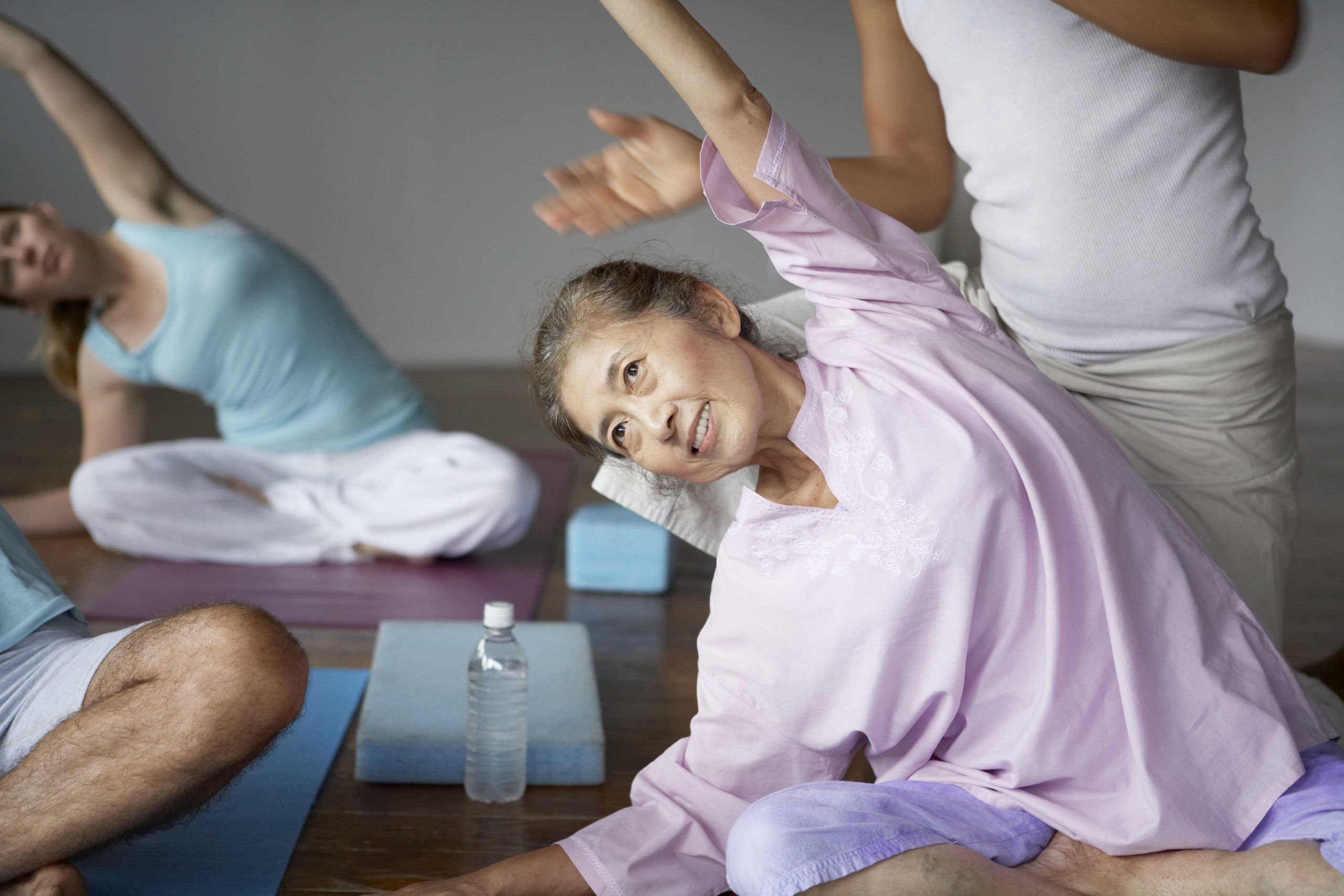
Fitness and ageing in your 60s (and beyond): low impact exercises, stiff joints and shortened ligaments
You may start to have more joint aches and pains in later life. ‘Joint movement becomes stiffer and less flexible because lubricating fluid inside your joints decreases and the cartilage becomes thinner,’ says Rowe-Ham. ‘Ligaments also tend to shorten and lose some flexibility, making joints feel stiff.’
She recommends you warm up and cool down well and do mobility exercises. ‘Yoga, Pilates or barre once a week will help keep your joints moving,’ she adds. Swimming is also a great impact-free exercise. Social interaction is vital for mental health and motivation, so why not try activities such as walking groups, tennis, dance or group t’aichi?
And remember Frampton’s attitude to keeping his body in top form: ‘I look at agility and mobility as akin to brushing your teeth twice a day,’ he says. Wise words.

